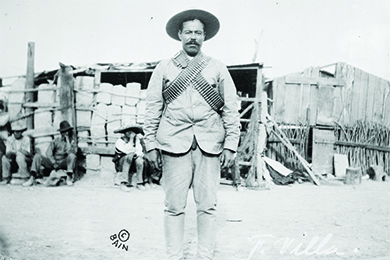| << Chapter < Page | Chapter >> Page > |
Furthering his goal of reducing overseas interventions, Wilson had promised not to rely on the Roosevelt Corollary, Theodore Roosevelt’s explicit policy that the United States could involve itself in Latin American politics whenever it felt that the countries in the Western Hemisphere needed policing. Once president, however, Wilson again found that it was more difficult to avoid American interventionism in practice than in rhetoric. Indeed, Wilson intervened more in Western Hemisphere affairs than either Taft or Roosevelt. In 1915, when a revolution in Haiti resulted in the murder of the Haitian president and threatened the safety of New York banking interests in the country, Wilson sent over three hundred U.S. Marines to establish order. Subsequently, the United States assumed control over the island’s foreign policy as well as its financial administration. One year later, in 1916, Wilson again sent marines to Hispaniola, this time to the Dominican Republic, to ensure prompt payment of a debt that nation owed. In 1917, Wilson sent troops to Cuba to protect American-owned sugar plantations from attacks by Cuban rebels; this time, the troops remained for four years.
Wilson’s most noted foreign policy foray prior to World War I focused on Mexico, where rebel general Victoriano Huerta had seized control from a previous rebel government just weeks before Wilson’s inauguration. Wilson refused to recognize Huerta’s government, instead choosing to make an example of Mexico by demanding that they hold democratic elections and establish laws based on the moral principles he espoused. Officially, Wilson supported Venustiano Carranza, who opposed Huerta’s military control of the country. When American intelligence learned of a German ship allegedly preparing to deliver weapons to Huerta’s forces, Wilson ordered the U.S. Navy to land forces at Veracruz to stop the shipment.
On April 22, 1914, a fight erupted between the U.S. Navy and Mexican troops, resulting in nearly 150 deaths, nineteen of them American. Although Carranza’s faction managed to overthrow Huerta in the summer of 1914, most Mexicans—including Carranza—had come to resent American intervention in their affairs. Carranza refused to work with Wilson and the U.S. government, and instead threatened to defend Mexico’s mineral rights against all American oil companies established there. Wilson then turned to support rebel forces who opposed Carranza, most notably Pancho Villa ( [link] ). However, Villa lacked the strength in number or weapons to overtake Carranza; in 1915, Wilson reluctantly authorized official U.S. recognition of Carranza’s government.

As a postscript, an irate Pancho Villa turned against Wilson, and on March 9, 1916, led a fifteen-hundred-man force across the border into New Mexico, where they attacked and burned the town of Columbus. Over one hundred people died in the attack, seventeen of them American. Wilson responded by sending General John Pershing into Mexico to capture Villa and return him to the United States for trial. With over eleven thousand troops at his disposal, Pershing marched three hundred miles into Mexico before an angry Carranza ordered U.S. troops to withdraw from the nation. Although reelected in 1916, Wilson reluctantly ordered the withdrawal of U.S. troops from Mexico in 1917, avoiding war with Mexico and enabling preparations for American intervention in Europe. Again, as in China, Wilson’s attempt to impose a moral foreign policy had failed in light of economic and political realities.

Notification Switch
Would you like to follow the 'U.s. history' conversation and receive update notifications?